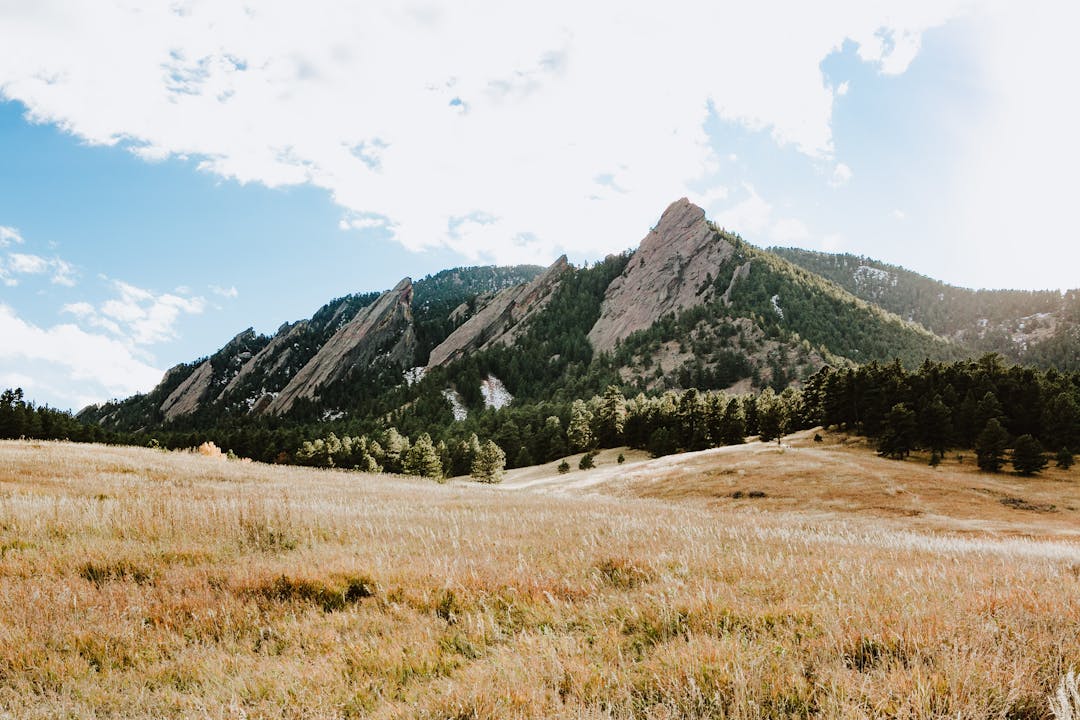2022 Proposed Climate Tax
Consultation has concluded

Boulder taxpayers have supported the city’s climate work for decades, contributing about $4 million annually to climate and sustainability programs. Early next year, a portion of this funding is set to expire, creating a gap in funding.
To close this gap, the city is proposing the creation of a new climate tax. As designed, the new climate tax would raise approximately $6.5 million per year to fund climate and resilience efforts. If approved by council, the climate tax would require voter approval in the November election.
Funding Proposal: New Climate Tax
By creating a new climate tax,Continue reading
Boulder taxpayers have supported the city’s climate work for decades, contributing about $4 million annually to climate and sustainability programs. Early next year, a portion of this funding is set to expire, creating a gap in funding.
To close this gap, the city is proposing the creation of a new climate tax. As designed, the new climate tax would raise approximately $6.5 million per year to fund climate and resilience efforts. If approved by council, the climate tax would require voter approval in the November election.
Funding Proposal: New Climate Tax
By creating a new climate tax, the city can simplify climate investments, tackle high-impact projects, better align with the scale of investment necessary and address inequities created by the current tax.
Tax Proposal Details
Note: Details subject to City Council changes.
New climate tax to be collected 2023 to 2040
Replace existing taxes that fund climate work
Fund climate and wildfire resilience projects
Continue to collect tax on Xcel Energy utility bills
Raise revenues by approximately 6.5 million per year
Change rates for customer classes
Proposed Changes to Average Annual Costs, By Customer Type
Customer Type | Current Annual Cost (CAP + UOT) | Proposed Annual Cost (Climate Tax) |
Residential | $42.95 | $49.66 |
Commercial | $292.42 | $487.37 |
Industrial | $1,084.11 | $1,806.85 |
Total Revenue for Climate Efforts | $3.9 million | $6.5 million |
What would it fund?
If approved, revenues from this tax would support ongoing and new climate and resilience projects. Those could include:
- Direct cash assistance to homeowners, landlords and businesses to fund energy efficiency upgrades
- Projects such as microgrids and energy storage to support resilience and renewable energy development
- Residential and commercial building electrification
- Expansion of transportation electrification projects and electric vehicle charging stations; and
- Advancement of natural climate solutions.
Wildfire resilience projects could include:
- Funding for a dedicated fire risk assessment team;
- Grants to support residential wildfire risk prevention measures like vegetation management, fence reconstruction and roofing/siding replacement;
- Strategic undergrounding of power lines; and
- Ecosystem restoration
-
Share on Facebook Share on Twitter Share on Linkedin Email this link
How is climate change impacting you?
almost 2 years agoView All IdeasWe want to know how climate change is impacting members of our community.
-
Share on Facebook Share on Twitter Share on Linkedin Email this link
How should the city spend the Climate Tax?
over 1 year agoStart by submitting an ideaIf the Climate Tax passes, where should the city direct the funds? What projects or programs should the Climate Tax support?
-
Share on Facebook Share on Twitter Share on Linkedin Email this link
City climate action ideas
almost 2 years agoShare your ideas for how the city could leverage its resources to address the climate crisis in an equitable way.
View All Ideas Sidover 1 year ago
Sidover 1 year agoIncrease the number of transit oriented developments
Increased density around transit with mixed use developments will reduce car dependence, reduce carbon emissions, and reduce congestion.
0 comment0 Sattva123almost 2 years ago
Sattva123almost 2 years agoBan private small aircraft from flying over wildfire at-risk areas
Small aircraft pose a constant wildfire threat to Boulder, as evidenced by the tragic events of July 17th where a small plane crashed in Boulder and started a wildfire. Just a few months prior, a small plane flying on a Red Flag day started a fire in Broomfield. One thing that can be done with current resources is ban small air craft from flying over at-risk areas in Boulder to prevent another wildfire as what happened today.
0 comment0 Pineconeover 1 year ago
Pineconeover 1 year agoCity buildings
Convert city buildings to high-efficiency all-electric
0 comment0 dphowalmost 2 years ago
dphowalmost 2 years agoCollaborate with Strong Towns organization to plan for a sustainable, non-car dependent city
See https://www.strongtowns.org/community-action-lab . Strong Towns is currently soliciting applications for cities to work with their teams to coordinate city action and development plans to shift towards economically solvent and sustainable cities. This is directly connected to climate action needs as we require a financially solvent city that is able to support itself and its community members if the same city is also able to address climate issues. In this case, I strongly encourage utilizing the Strong Towns expertise towards understanding densification in Boulder to reduce car dependency and create additional areas of Boulder beyond Pearl Street that are designed for people not cars, ie walkable and "charming" neighborhoods. This would include incrementally zoning for small businesses/corner stores in present day single family zoned neighborhoods. This would be consistent towards recognizing that single family zoning is also not carbon friendly (e.g. building climate control heat loss/gain is multiplied by 4 walls vs 1-3 walls in multi-family housing). Car parking minimums are also detrimental as it encourages urban sprawl, encourages greater asphalt use, and unequally subsidizes people who choose to own cars. Incrementally designing our city towards a future no longer requiring car ownership (ie every household can walk to a grocery store) for those in East and North Boulder specifically would be great. Densification issues and efficient use of Boulder's limited land resources could also tie into the already established efforts to offer rebates for energy efficiency upgrades and retrofits. Notably, the current plan targets the receipt of these monies by the owner class, ie homeowners, landlords, and business owners. There should be additional language in receiving these monies that support the renter or employee, such as requiring a percentage of affordable housing units. Alternatively, directing CAP revenue to all Boulder residents equitably, a city carbon dividend of sorts, would be the more equitable solution instead of only allowing the owner class to use said revenues for energy efficiency upgrades. If the prior is not feasible, at least enforce all newly built housing be offered grant rebates for degrees of LEED certification for businesses, or inclusion of heat pumps plus proper insulation installed with residential property building codes. With respect to the densification idea again, under CAP, this might likely involve a use tax based on the ratio of building square footage to lot square footage. Inefficient land use is not a carbon positive choice and financially, most single family zoned neighborhoods are net negative income wise for a city given the outsized cost of utility services needed to traverse longer distances per person living in those homes as well as long term maintenance costs of roads feeding this more distant and distant from each other housing stock. Increasing taxes based on parcel size on single family housing would accurately account for these higher costs, and higher carbon emissions, per capita on this zone type. Multi-family housing should then have a lower per capita tax burden but higher, and actually positive, per capita tax revenue for the city. I'd secondarily encourage seeking out Urban3 to do an analysis of this scope for Boulder as part of CAP. CAP revenue could be directed towards consulting costs as warranted. I understand the meandering scope of this idea and prior text but I hope it provides a baseboard for an enthusiastic Boulder public policy expert and/or urban planner to follow through and better implement such ideas through CAP or otherwise.
0 comment1 ryanvover 1 year ago
ryanvover 1 year agoReduce long commutes and the jobs/housing imbalance by allowing fourplexs to be built on any lot in the city.
0 comment1 -
Share on Facebook Share on Twitter Share on Linkedin Email this link
How can the city help you address and prepare for climate change?
almost 2 years agoStart by submitting an idea
Who's Listening
-
Director of Climate Initiatives
JK -
-
LK



